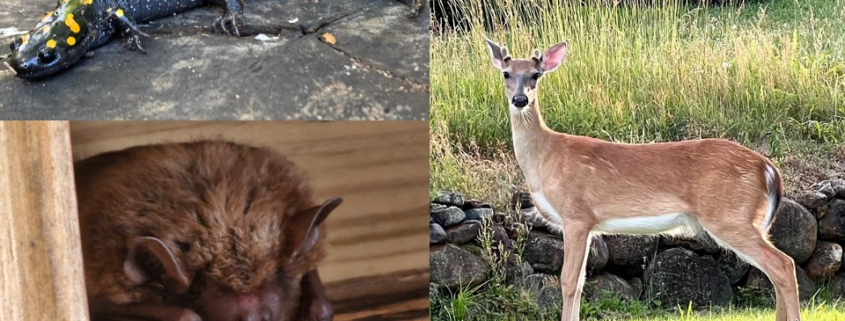Emerged, Emerging and Potential Infectious Diseases of Virginia Wildlife, December 7th
Photo: Courtesy of the VMN Continuing Education Webinar Series
Thursday, December 7, 2023
12:00-1:00 pm
VMN Continuing Education Webinar
Registration: Pre-registration required.
As Virginians, we live in a unique, diverse but fragile ecosystem comparable to any area on earth. A realization of this is made obvious when one considers the havoc that an introduced infectious disease can have on a wildlife population. In this presentation, the biology and impact of three different infectious diseases will be presented and the roles Master Naturalists could play in recognizing and controlling these diseases. The first is an infectious disease that has emerged: white nose syndrome of bats that is devastating the bat population in our state. The second, chronic wasting disease of deer, an emerging disease that is slowly spreading through the deer population of Virginia with potential public health implications. The final disease is Batrachochytrium salamandrivorans (a.k.a. Bsal) a deadly disease that has recently spread from Asia to Europe and is expected to soon be found in North America. North America has the greatest salamander diversity in the world with much of this diversity occurring along the mid-Atlantic Appalachians.
Robert “Bob” Dunstan is a veterinary pathologist who has over 100 publications dealing with diseases of animals and humans in their many manifestations. He was a full professor of pathology at Michigan State University and at Texas A&M University where he specialized in dermatopathology. In 2004, he was recruited by Pfizer to help develop new treatments for dermatologic diseases in humans. To do this he started using artificial intelligence to quantify the microscopic effects of emerging topical therapies. Four years later he was recruited as a distinguished investigator by Biogen, where he studied Alzheimer’s disease as well as several autoimmune diseases. He finished his career working for Abbvie, applying deep learning methods on inflammatory bowel disease. Retiring this year, Bob became a Master Naturalist in 2012.




